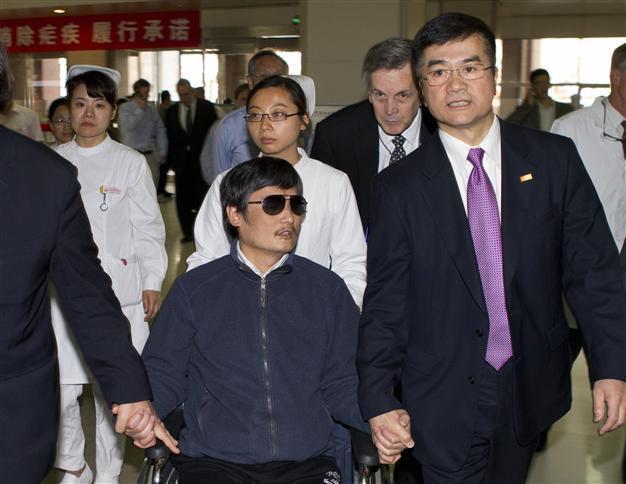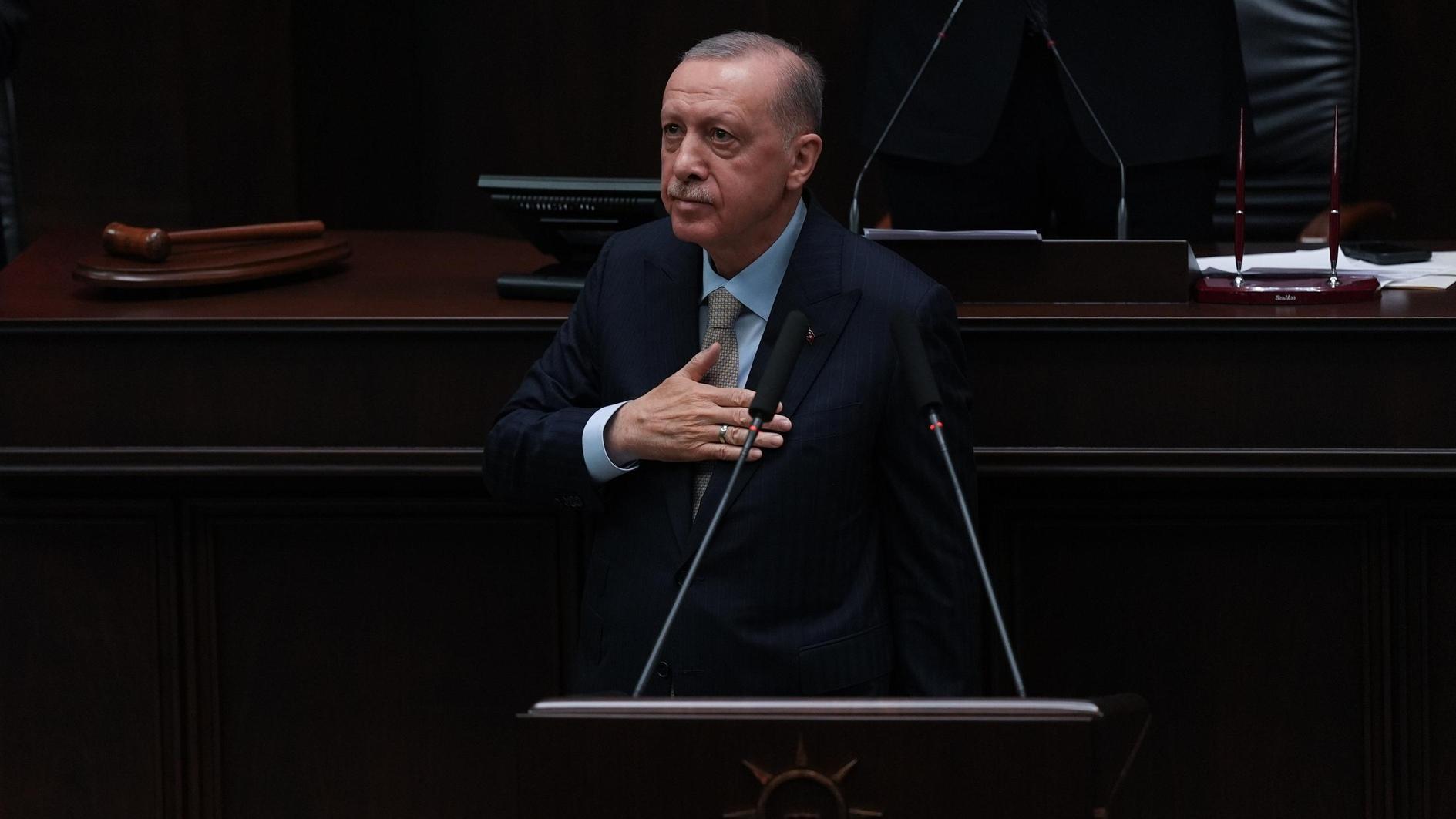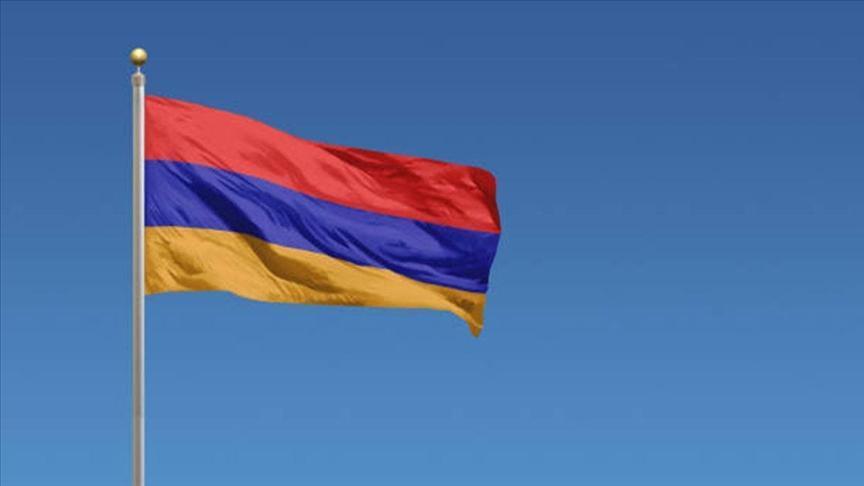China activist seeks official help to go to US
BEIJING - Agence France-Presse

In this file photo taken Wednesday, May 2, 2012. and released by the U.S. Embassy Beijing Press Office, blind lawyer Chen Guangcheng, center, holds hands with U.S. Ambassador to China, Gary Locke, at a hospital in Beijing. AP photo
Chinese activist Chen Guangcheng, isolated in a Beijing hospital, on Sunday appealed for official help to leave the country after a US-brokered diplomatic solution paved the way for his departure.Chen is at the centre of a major diplomatic wrangle between China and the United States after he dramatically escaped harsh house arrest in the eastern province of Shandong and sought refuge at the US embassy in Beijing.
He has been offered a fellowship from New York University but injuries sustained during his flight and official restrictions on access to him have prevented him from completing the necessary formalities to leave.
The activist was escorted to the Beijing hospital by US officials on Wednesday, but said his friends had been barred from visiting and US diplomats had only been allowed to see his wife, who was with him at the facility.
"Now I have notified the hospital to invite them (government officials) to help me do the procedures. I really don't have a way," he told AFP in a telephone interview.
"It's even difficult for me to get out of bed and my other friends cannot come, so I have no way. They (US diplomats) have come, but they can't see me." Chen, who riled authorities by exposing forced abortions and sterilisations under China's "one-child" policy, says he wants to depart for the United States for his safety and that of his wife and two young children.
China's foreign ministry said on Friday that he would be allowed to apply to study abroad, signalling then-visiting US Secretary of State Hillary Clinton had secured a deal with the Chinese government.
Chen, 40, a self-taught lawyer, is in hospital being treated for foot injuries sustained during his escape from his village home, where he says he was beaten and kept under constant surveillance.
Friends of the dissident told AFP Chen and his family were preparing to go to the United States and might leave soon though his departure would depend on the Chinese government giving permission and issuing passports.
Jerome Cohen, a New York University professor who is a friend and adviser to Chen, said he may go to the United States "soon".
"It's conceivable he could be here quite soon," Cohen told AFP by telephone from his US home.
"I'm hoping it's a done deal. I was very excited when I saw the announcement by the foreign ministry spokesman on Friday afternoon," he said.
"That's an open signal that they are prepared to let him come abroad for a period of study," said Cohen, who spoke to Chen twice before he left the US embassy but not since.
A spokesman for New York University said Friday that the activist had been invited to study there.
Chen said he did not know how long he would be in hospital, but fellow activist lawyer Jiang Tianyong, who spoke to him by phone late Saturday, said he would probably be in the hospital a few more days for treatment.
"The current situation is that he hopes he and his family can go together to the United States," Jiang told AFP on Sunday. "He hopes to come back." The entrances of the Chaoyang Hospital compound remained tightly guarded by uniformed police on Sunday and the wary authorities kept journalists in a designated area outside, an AFP photographer said.
If Chen decides to take up the NYU offer, he would be a visiting scholar at the law school with a programme of study and lecture, Cohen said.
"I wouldn't be surprised if he got here within a week. But if it takes a month, it doesn't matter and it wouldn't surprise me either," he said.
US officials appeared to be keeping the details, including a timescale, of the agreement with Beijing deliberately vague, fearing that it would fall through if China felt embarrassed on its home soil.
The US State Department said it expected China to move "expeditiously" to grant Chen a passport.
















